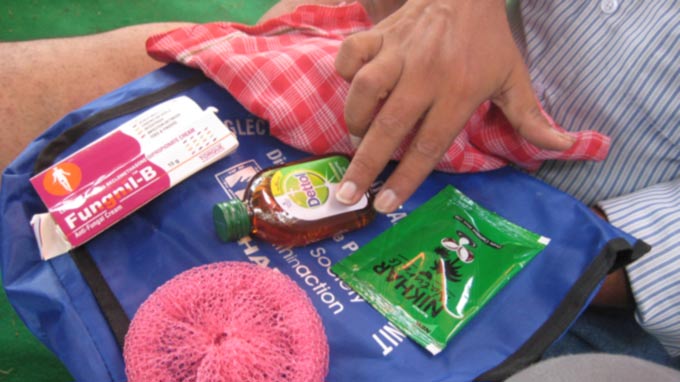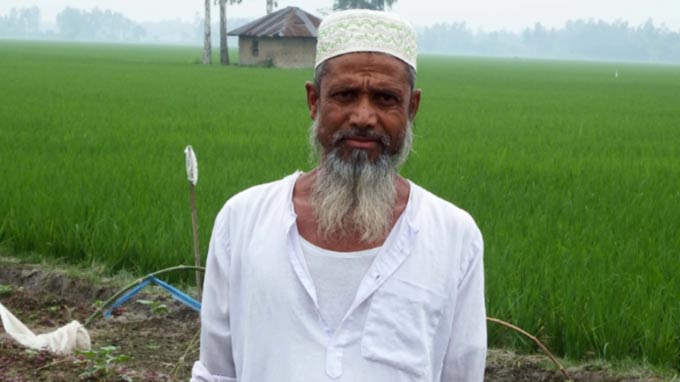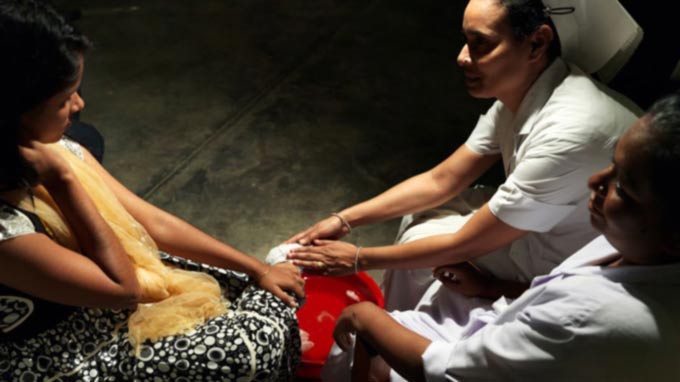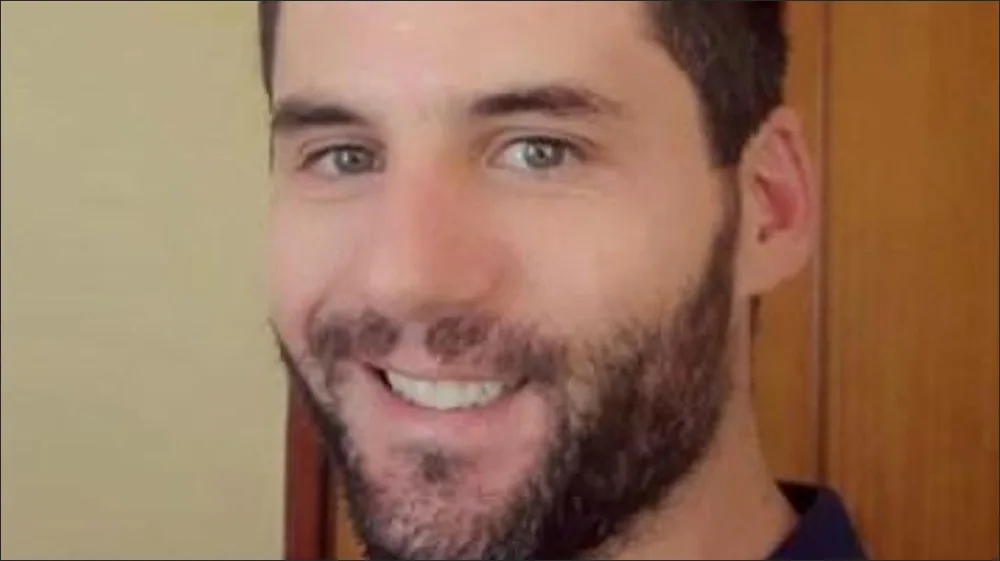 Over 200,000 people are diagnosed and treated for leprosy each year. It’s most prevalent in the developing world, where living conditions are poor and people struggle to access clean water and sufficient healthcare. In countries such as Bangladesh, where 90% of the population are Muslim, the disease affected just under 4,000 people in 2015.
Over 200,000 people are diagnosed and treated for leprosy each year. It’s most prevalent in the developing world, where living conditions are poor and people struggle to access clean water and sufficient healthcare. In countries such as Bangladesh, where 90% of the population are Muslim, the disease affected just under 4,000 people in 2015.
The cure has been available since 1981– yet because of a lack of focus in governmental outreach to treat people it’s believed that 4 million people live with disabilities caused by this disease worldwide.
Leprosy is no longer defined as a public health problem if a country has less than one case per 10,000 people. Since 1985, 121 countries have reported that leprosy has been eliminated, including Bangladesh. However, given the vast total population sizes of these counties, it still means there are thousands of people each year who need support. Yet – as it is no longer a public health problem, there has been a decrease in funds allocated to the national leprosy programmes and consequently, it has lost its importance in comparison to other diseases.
In Bangladesh, the combination of people living below the poverty line and in extreme poverty stands at 25% of the population. The disabilities caused by leprosy contribute to this figure as it prevents many from earning a living and unable to afford the most basic of necessities to survive.
Lepra, an international charity working in Bangladesh, works to find, diagnose and treat people living with leprosy. They also work to help those living with disabilities out of poverty, teaching them how to care for their affected limbs and to reduce infections and ulceration – otherwise known as ‘self-care’.
Maartje Pronk, Programmes Officer for Bangladesh at Lepra explains why self-care is so important:
“In the rehabilitation process, self-care is vital, as it helps to reduce disabilities that prevent many from being able to take part in the most basic of activities. Self-care is practiced in groups, where volunteer staff teach people how to care for and dress their ulcers and injuries properly and they are also given self-care kits so they can practice at home. It also combats social isolation, helping many living with the effects of this disease to meet other likeminded people. This increased level of care helps many people to go back to work, retain their livelihood and escape poverty.”

Ashraf Ali lives in the Bogra district of Bangladesh. He is a father and a husband and he is also the main provider for his family. His toes are damaged and he cannot feel his feet – all because he received a late leprosy diagnosis. Although now cured of the disease, he will never regain sensation in his feet, leaving them susceptible to ulcers and infection for the rest of his life. This made it difficult for him to continue his livelihood and as a result his family began to struggle to afford food.
Because of this, he joined a Lepra self-help group, where he was provided with a self-care kit to treat his ulcers. He was so inspired by this activity that he decided he wanted to help others by passing on his knowledge to people affected by leprosy to enable them to care for their disabilities and improve their quality of life.
Ashraf Ali then acquired a small loan to rent a fertile area in the middle of a paddy field where he cultivated a vegetable growing business. His business is doing well and he is hugely proud of his achievements. His total income has increased by 35% and he can now provide for his family again.
Ashraf says self-care has changed his life:
“I am so happy now with the group. I have confidence to learn new skills and I’m encouraging other people to do the same.”
Last year, 4,514 people in Bangladesh received self-care training by Lepra. Because of the positive impact it has on so many people’s lives, the charity want to run even more self-care groups to improve the health standards of people affected by this disease, so they can return to work and escape poverty.

To help the 4 million people living with disabilities today, readers can support Lepra’s Ramadan appeal.
Website links
To find out more about Lepra’s Ramadan Appeal visit www.lepra.org.uk/appeal/help-people-out-of-poverty-this-ramadan
To find out more about self-care visit www.lepra.org.uk/disability-care
To find out more about Lepra visit www.lepra.org.uk
About Lepra
Lepra, founded in 1924, is a UK registered international charity headed by HM Queen Elizabeth II as its Patron. The charity works with individuals and communities affected by some of the world’s oldest and most neglected diseases, including leprosy and lymphatic filariasis.
Working on the ground in India, Bangladesh and Mozambique, Lepra treats, educates and rehabilitates, and through this gives a voice to people living on the margins of society. They have over 90 years’ experience and their approach to community engagement delivers real change to people’s lives.
Last year, Lepra reached more than 279,971 people directly through diagnosis, treatment and care.
They reached a further 2,376,344 people through health education and events to raise awareness of diseases.
Additional information
2016 stats for numbers of leprosy cases in Bangladesh will be released by the World Health Organisation in September 2017
For more information please contact:
Fiona Graham (Communications Officer)
[email protected] T. + 44 (0)1206 216710







